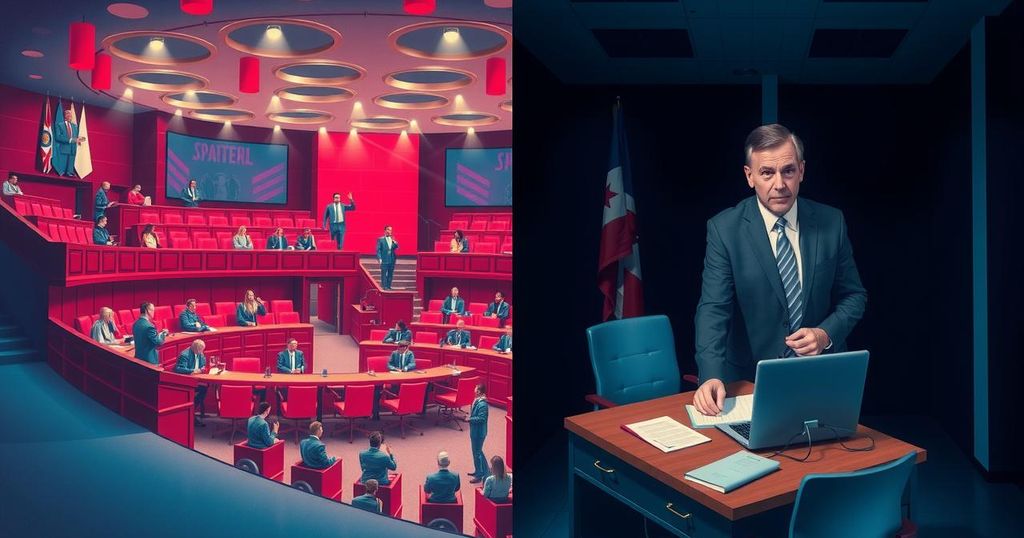NPP Struggles to Define Opposition Role Amid Parliamentary Success

The NPP faces challenges in its role as an opposition party, according to a new study. The parliamentary caucus scored well in oversight but lacked in policy alternatives. This disparity indicates deeper issues within the party, especially concerning grassroots support and engagement.
The New Patriotic Party (NPP) seems to be grappling with its identity in opposition as a recent study reveals significant disparities in performance between its parliamentary members and the broader party structure. Conducted by the Ghana Academic Professional Forum, the analysis found that while the NPP minority in Parliament achieved an impressive 80% score for legislative oversight, it lagged far behind with only a 30% score for developing policy alternatives. This striking difference highlights critical weaknesses in the party’s overall opposition strategy.
Dr. Frank Bannor from the Ghana Institute of Management and Public Administration (GIMPA) presented the worrying findings. His report indicated that the NPP scored below 50% in six out of seven assessed categories, touching on areas such as public engagement and grassroots mobilization. “The Minority’s vigor in Parliament contrasts sharply with the party’s silence on national issues,” Bannor remarked. He noted the notable absence of senior party officials during significant political events, raising questions about the party’s engagement levels.
There’s growing concern as the NPP, five months post-government, has not established shadow ministries or detailed policy frameworks. Political analysts are interpreting these findings as potential indicators of deeper organizational issues facing the NPP. The party is under increasing pressure to show that it has a significant role to play outside parliamentary debates, as the political landscape continues to evolve.
The assessment provides measurable criteria for understanding opposition effectiveness in Ghana’s democracy. This is particularly relevant as the country gears up for the next elections in 2028, making it clear that the NPP needs a revitalized approach if it hopes to maintain its relevance on the national stage. The implications of these findings could not only affect the NPP’s strategy but also the future electoral battles ahead.
In summary, the NPP is struggling to clearly define its role as an opposition party. With significant differences revealed between its parliamentary success and the overall party performance, the lack of policy alternatives and grassroots engagement are alarming signs. Moving forward, addressing these deficiencies will be critical for the NPP as it prepares for future elections in Ghana’s evolving political environment.
Original Source: www.newsghana.com.gh







